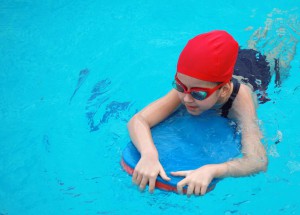Most children will at some point in their life find themselves near water, whether your family takes a holiday at the seaside, goes on a boat trip, goes fishing at a dam or has a braai by the pool. Learning to swim is crucial as it teaches children water safety, enhances their physical and mental fitness, teaches them to participate individually and in a team, grows their confidence and enables them to take part in other exciting water activities.
 Making sure your child is comfortable in and around water at a young age is essential to their safety as learning to swim gives your child the ability to survive in water and possibly save someone’s life too. Children of any age, size or ability can take part in this activity which is more accessible to children with disabilities than most other sports.
Making sure your child is comfortable in and around water at a young age is essential to their safety as learning to swim gives your child the ability to survive in water and possibly save someone’s life too. Children of any age, size or ability can take part in this activity which is more accessible to children with disabilities than most other sports.
Swimming has a multitude of physical benefits including keeping your child’s heart and lungs healthy, improving strength, endurance and flexibility, benefitting metabolism, improving balance and posture and works a variety of muscle groups. It is a low-impact exercise which is less strenuous on the body than other sports and is a safer exercise option to improve quality of life.
 There are also several psychological benefits of swimming as a session at the pool relaxes the mind, uplifts the spirits and is often an occasion where swimmers can be social with other like-minded individuals. Those who swim regularly are likely to experience less tension, depression and anger and become energised after swimming.
There are also several psychological benefits of swimming as a session at the pool relaxes the mind, uplifts the spirits and is often an occasion where swimmers can be social with other like-minded individuals. Those who swim regularly are likely to experience less tension, depression and anger and become energised after swimming.
A combination of team work and individuality is learnt through swimming as swimmers compete individually and as a team. Swimmers learn to support their team mates creating a positive atmosphere and competitive swimmers learn self-motivation and goal setting as they try to beat personal best times while swimming for the team as a whole.
Swimming is a skill for life and with so many important benefits of this fantastic sport, there is no reason to delay – start your child swimming today!
